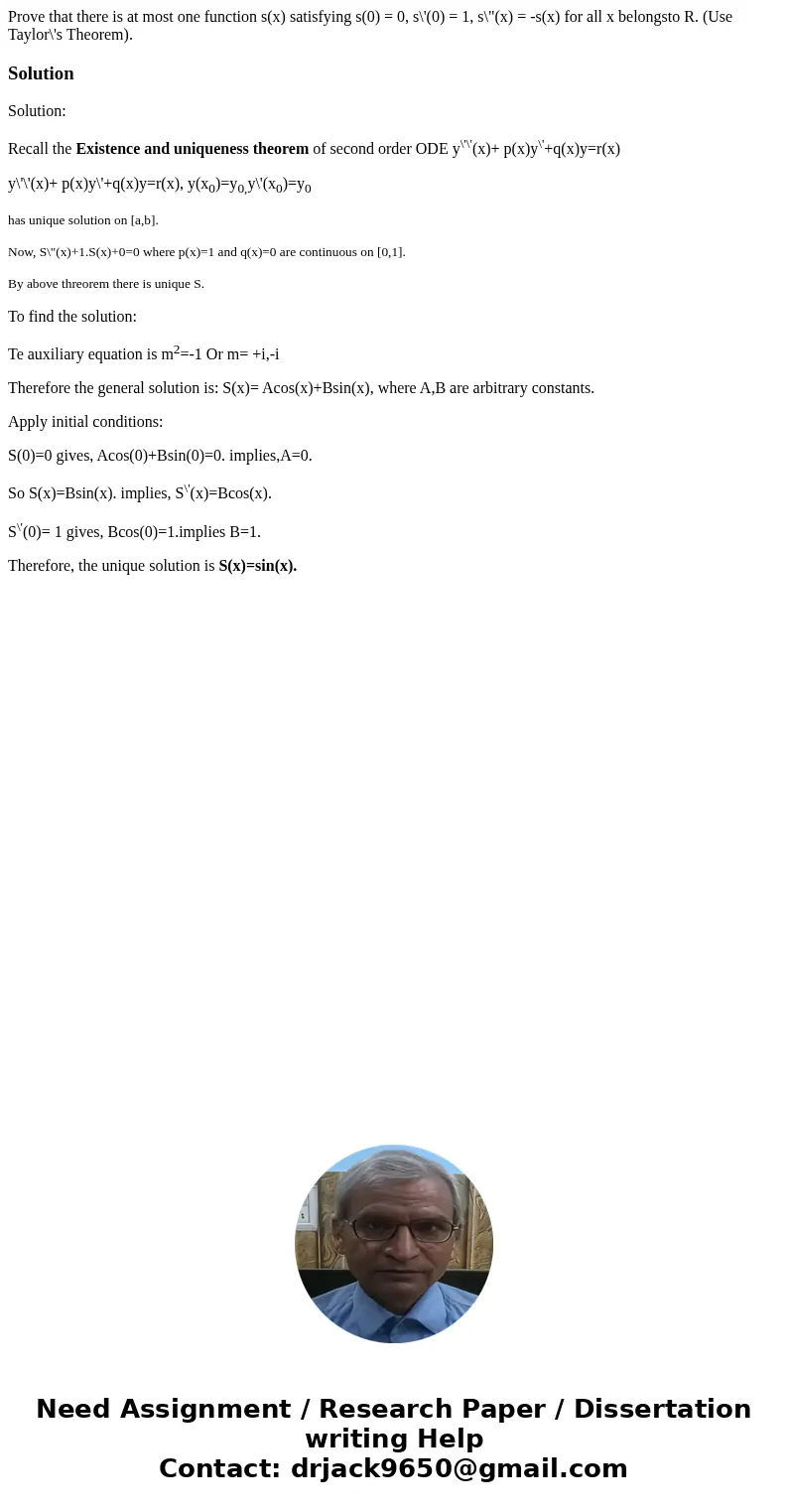Prove that there is at most one function sx satisfying s0 0
Prove that there is at most one function s(x) satisfying s(0) = 0, s\'(0) = 1, s\"(x) = -s(x) for all x belongsto R. (Use Taylor\'s Theorem).
Solution
Solution:
Recall the Existence and uniqueness theorem of second order ODE y\'\'(x)+ p(x)y\'+q(x)y=r(x)
y\'\'(x)+ p(x)y\'+q(x)y=r(x), y(x0)=y0,y\'(x0)=y0
has unique solution on [a,b].
Now, S\"(x)+1.S(x)+0=0 where p(x)=1 and q(x)=0 are continuous on [0,1].
By above threorem there is unique S.
To find the solution:
Te auxiliary equation is m2=-1 Or m= +i,-i
Therefore the general solution is: S(x)= Acos(x)+Bsin(x), where A,B are arbitrary constants.
Apply initial conditions:
S(0)=0 gives, Acos(0)+Bsin(0)=0. implies,A=0.
So S(x)=Bsin(x). implies, S\'(x)=Bcos(x).
S\'(0)= 1 gives, Bcos(0)=1.implies B=1.
Therefore, the unique solution is S(x)=sin(x).

 Homework Sourse
Homework Sourse